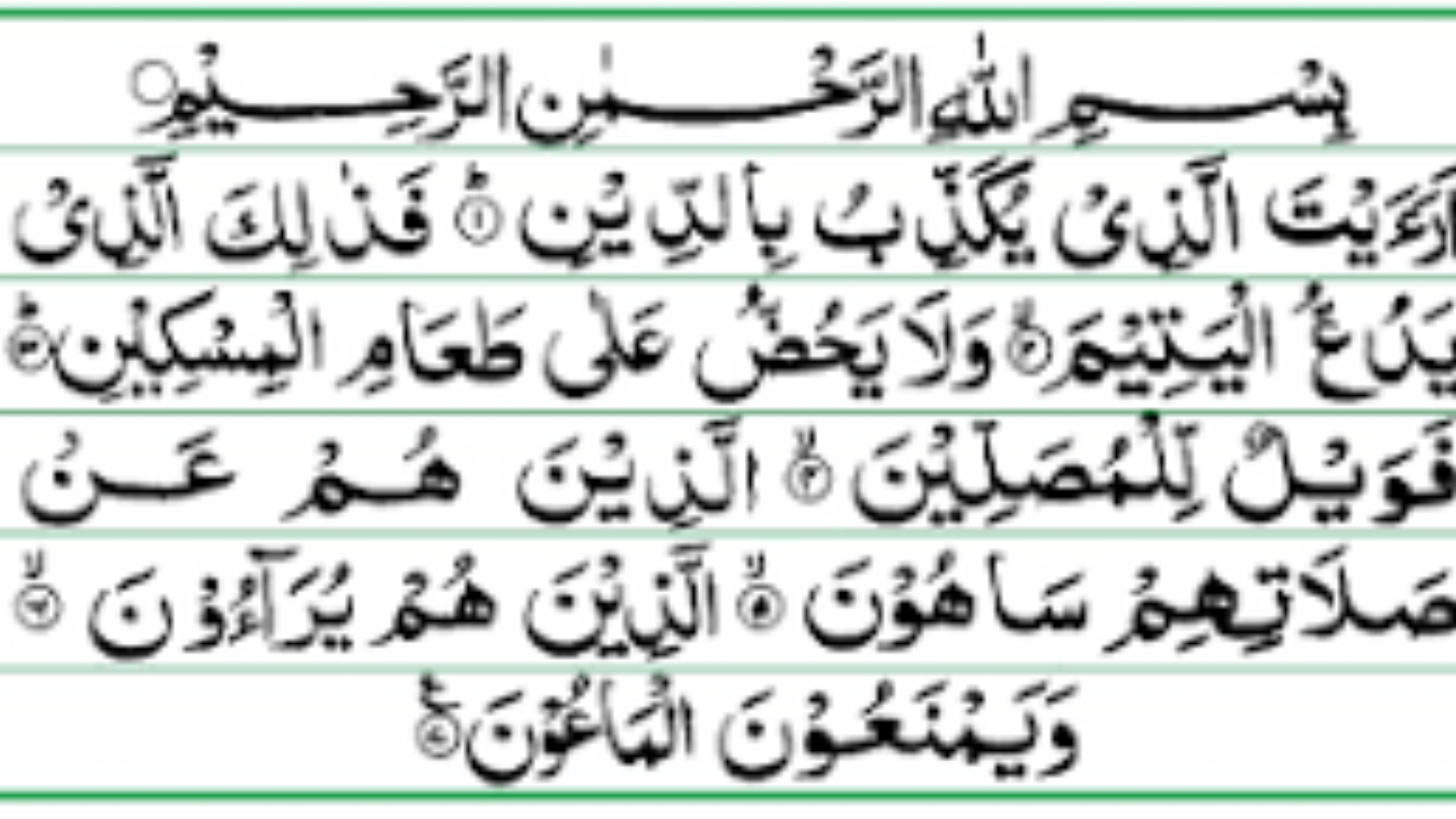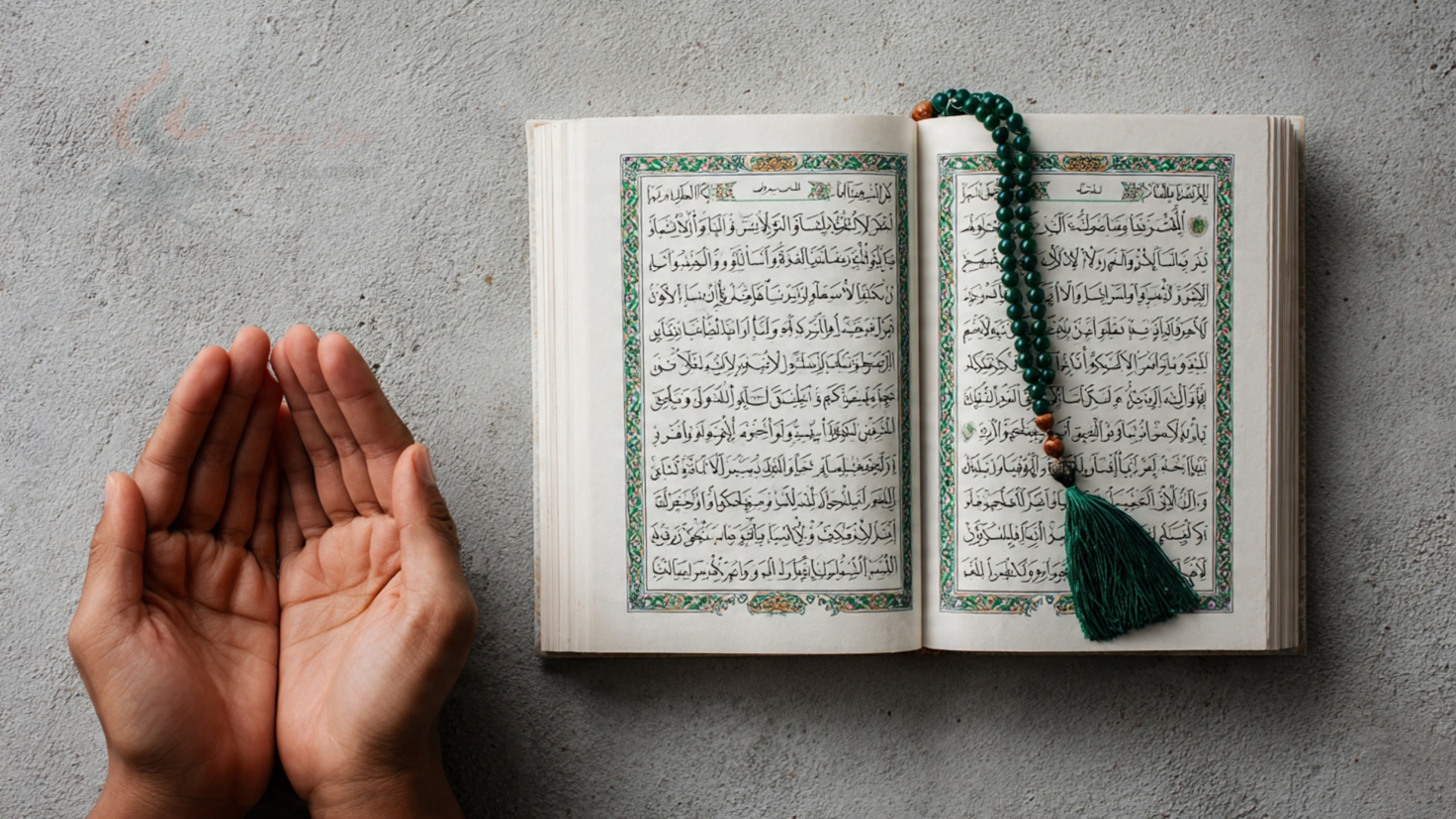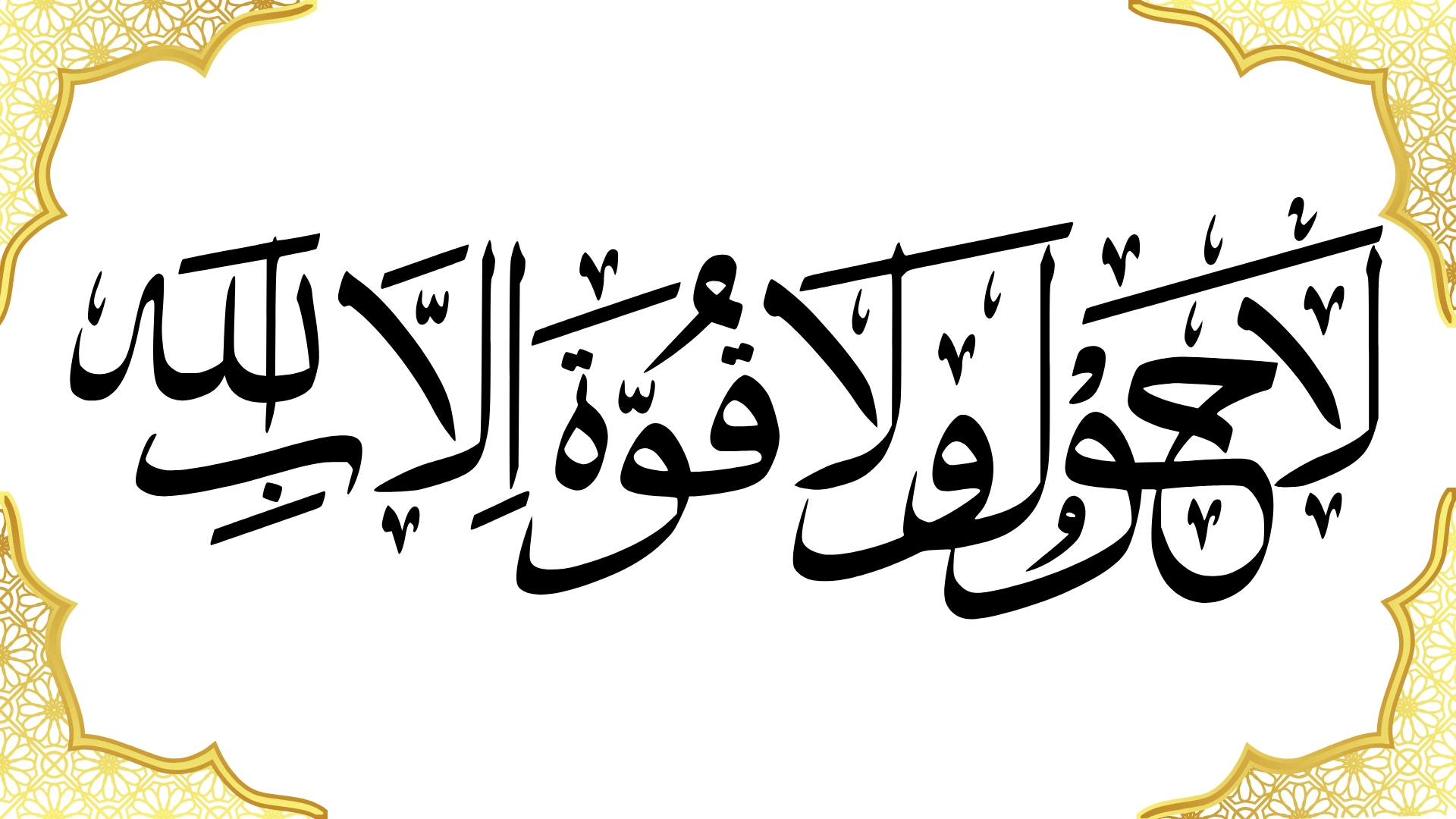Surah Al-Ma’un emphasizes the significance of sincerity in worship and compassion for the less fortunate. Through seven concise verses, this chapter explores themes like hypocrisy, neglect of social responsibility, and the importance of small acts of kindness. Its timeless message links spiritual devotion with societal duties, urging believers to manifest their faith through actions.
Researchers and scholars regard Surah Al-Ma’un as a pivotal text addressing social justice and faith-based accountability. According to their studies, the chapter critiques superficial piety—acts of worship done for show rather than spiritual growth. It also highlights the neglect of vulnerable groups such as orphans and the poor, stressing the moral and societal consequences of such indifference. Many analyses acknowledge this surah as a guide for fostering ethical behavior and inclusive communities.
Surah Al-Ma’un inspires an urgent call for action, resonating deeply in today’s world. Its simplicity conceals its profound impact, challenging every individual to reassess their intentions and responsibilities. Beyond just prayer, this chapter demands kindness in daily life, from lending a helping hand to sharing resources. Integrating faith with meaningful actions, it reveals the path to building just, compassionate societies rooted in genuine morality. This blog explores its meaning, themes, and relevance while unpacking the layers of wisdom it offers.
Overview of Surah Al-Maun
The name “Al-Ma’un” translates to “the small kindness” or “acts of charity.” Revealed either during the Meccan or early Medinan period of Prophet Muhammad’s (peace be upon him) mission, the surah remains timeless. It identifies behaviors that derail societies and examines how individuals deny social obligations and religious duties. This surah calls out hypocrisy. It spotlights those who perform outward acts of worship but neglect true acts of kindness and generosity.

Surah Al-Ma’un Translitertion, Urdu & English Translation
بِسۡمِ ٱللَّهِ ٱلرَّحۡمَٰنِ ٱلرَّحِيمِ
Bismillah hir rahman nir raheem
اللہ کے نام سے شروع جو نہایت مہربان ، رحمت والاہے ۔
In the name of Allah, the Entirely Merciful, the Especially Merciful.
أَرَءَيۡتَ ٱلَّذِي يُكَذِّبُ بِٱلدِّينِ
Ara ‘aytal lazee yukazzibu biddeen
کیا تم نے اس شخص کو دیکھا جو دین کو جھٹلاتا ہے۔
Have you seen the one who denies the Recompense?
فَذَٰلِكَ ٱلَّذِي يَدُعُّ ٱلۡيَتِيمَ
Fazaalikal lazee yadu’ul-yateem
پھر وہ ایسا ہے جو یتیم کو دھکے دیتا ہے۔
For that is the one who drives away the orphan
وَلَا يَحُضُّ عَلَىٰ طَعَامِ ٱلۡمِسۡكِينِ
Wa la yahuddu ‘alaa ta’aamil miskeen
اور مسکین کو کھانا دینے کی ترغیب نہیں دیتا۔
And does not encourage the feeding of the poor.
فَوَيۡلٞ لِّلۡمُصَلِّينَ
Fa wailul-lil musalleen
تو ان نمازیوں کے لئے خرابی ہے۔
So woe to those who pray
ٱلَّذِينَ هُمۡ عَن صَلَاتِهِمۡ سَاهُونَ
Allazeena hum ‘an salaatihim saahoon
جو اپنی نماز سے غافل ہیں ۔
[But] who are heedless of their prayer –
ٱلَّذِينَ هُمۡ يُرَآءُونَ
Allazeena hum yuraaa’oon
وہ جو دکھاوا کرتے ہیں ۔
Those who make show of their deeds]
وَيَمۡنَعُونَ ٱلۡمَاعُونَ
Wa yamna’oonal maa’oon
اور برتنے کی معمولی چیزیں بھی نہیں دیتے۔
And withhold [simple] assistance.
Themes in Surah Al-Maun
The surah focuses on specific behaviors that indicate a lack of faith and social conscience. It categorizes these into core themes.
Rejection of Accountability
The chapter begins with a jarring question about those who deny the Day of Judgment. This denial goes beyond disbelief. It produces a mentality devoid of accountability. When one rejects the idea of facing consequences, morality erodes. Lack of accountability blinds individuals to empathy, leading to selfishness in personal and communal interactions.
Neglect of Social Welfare
The surah connects disbelief with actions toward vulnerable individuals. Repelling orphans and withholding help from the poor cause societal instability. Orphans and needy individuals represent those most dependent on communal support. Refusing to support them violates basic human duty.
Through this critique, the surah draws attention to systemic neglect. It encourages active participation in uplifting those in need, making a case for collective well-being.
Rituals Without True Devotion
Surah Al-Ma’un addresses insincere worship. It identifies individuals who pray for appearances. They aim to impress others yet lack inner devotion. These individuals focus on displaying piety while ignoring the spiritual essence of prayer. Genuine worship should cultivate consciousness, humility, and empathy in believers.
Withholding Minor Acts of Charity
The final verse discusses withholding “Al-Ma’un,” the smallest act of kindness. Denying even such trivial assistance reflects extreme greed.
This verse reflects an important principle in Islam. Every small deed counts and kindness forms the foundation of a cohesive society.
Significance and Lessons
The surah holds lessons for individuals and communities. While its criticism may appear harsh, the intent remains corrective. Each verse provides actionable insights that encourage self-reflection.
Importance of Faith-Based Accountability
The surah establishes a clear link between faith and action. Belief in the Hereafter should convey responsibility. The Quran places accountability at its moral foundation. Believers act not to impress the world but to attain Allah’s acceptance.
When individuals understand accountability, they act justly. Their actions reflect a higher moral standard. This motivation ensures transparency and fairness in their dealings with others.
Upholding Social Justice
The Quran consistently advocates for the vulnerable. Surah Al-Ma’un reminds believers of their duty toward orphans and the poor. True faith manifests in deeds. Neglect leads to resentment and division. Conversely, societies founded on fairness grow stronger.
Worship as an Internal and External Practice
Prayer connects humans to their Creator. It prepares them to live ethically and selflessly. Yet, those who treat prayer as a public display lose sight of its goal.
This surah stresses transforming rituals into conscious acts. Prayer should cleanse hearts, not serve as a hollow tool for social approval. True worship shapes better individuals.Worship centered on Allah creates a sense of humility, encouraging service to mankind.
Value of Small Deeds
Islam does not only value monumental acts of charity. It recognizes the importance of everyday kindness. Lending tools, guiding a neighbor, or sharing essentials make lasting impacts. Such small deeds create trust, solidarity, and mutual reliance. Believers should adopt these practices consistently. Small gestures foster relationships and reflect shared humanity.
Relevance Today
Modern societies face challenges strikingly similar to the issues highlighted in Surah Al-Ma’un. Materialism often overrides moral responsibility. Vulnerable populations frequently face neglect.
This chapter revives vital lessons for contemporary application.
Combatting Materialism
Surah Al-Ma’un critiques selfishness. It encourages ethical considerations over hoarding wealth. By prioritizing shared prosperity, communities build sustainable systems. Modern welfare programs embody this principle. Still, individual responsibility remains the key to change.
Reinforcing Authentic Spirituality
Religion today sometimes focuses excessively on appearances. Spirituality reduced to empty gestures fails to inspire meaningful change. This surah calls for introspection. Authentic worship must drive ethical reform. Believers should evaluate their intentions regularly.
Creating Inclusive Societies
Disparities in wealth distribution remain stark globally. Surah Al-Ma’un advocates for wealth-sharing systems. Genuine solidarity can reduce inequalities. Governments, organizations, and individuals must work together to uplift the marginalized.
Rebuilding Kindness
Digital age interactions reduce human connection. Sharing even minor efforts fosters personal bonds.
Conclusion
The relevance of Surah Al-Ma’un transcends time. It holds solutions to timeless ethical problems. Its emphasis on sincerity combines with an unmistakable call for action. Together, these teachings promote a world balanced between spirituality and equity. This chapter serves as an antidote to hypocrisy and greed. Its call to retain authenticity in worship ensures humility remains central. The Quran’s holistic framework, epitomized in Al-Ma’un, leaves humanity with renewed confidence. It encourages each reader to nurture not just their spiritual connection with Allah but also to improve their societal contributions.
The surah concludes with a profound realization. The smallest gesture can transform someone’s world. Through such actions, communities thrive. The Quran thus stitches together worship, faith, and social responsibility into an interconnected whole. Surah Al-Ma’un challenges individuals to wake up. It insists that belief without actions remains incomplete. Collective effort, meaningful intention, and persistent kindness are the hallmarks of its teachings. Modern followers should heed these lessons to create just, compassionate societies. This conversion of faith into practice ensures the timeless beauty of Surah Al-Ma’un’s message continues to inspire.




